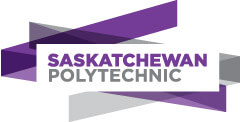About Computer Engineering Technology Diploma in Saskatchewan Polytechnic
Program Overview
If you’re fascinated by what makes computers tick, both inside (hardware) and out (software), becoming a computer engineering technologist has great possibilities. Work in information technology roles, network security, embedded systems, robotics, and automated systems. The future is still unfolding, and your career could go in many directions.
The Computer Engineering Technology program is a three-year, nationally recognized, diploma offered full time at Saskatchewan Polytechnic, Moose Jaw campus. You’ll get an exceptional hands-on learning experience during five semesters of classroom study and three Co-operative Education work terms.
Saskatchewan Polytechnic is unique in our emphasis on both hardware and software. You’ll learn how to:
- analyze, test and design analog and digital circuits
- design, fabricate and populate printed circuit boards
- program personal computers and microcontrollers using various programming languages
- design and test interfaces between computers and peripherals
- design, install and administer networks
- design and test various digital data transmission systems
- install, configure and maintain workstations and servers in various operating system environments
A capstone research project gives you an opportunity to apply what you’ve learned to the development of an original design, from concept through to prototype.
The Co-op Work Term Advantage
Co-operative work terms are paid, so you'll earn while you learn. Saskatchewan Polytechnic arranges your interviews; it's up to you to shine. It's also a chance to develop important "soft skills" in job interviewing, professional attitude, interpersonal communication and more.
Many of our co-op employers require both a valid Saskatchewan Driver's License and a clean Driver's Abstract. For international students, it can take up to 12 months to obtain a Driver's license; therefore, it is to your advantage to come with a Driver's License from your home country if possible.
Diploma to Degree
Use your diploma to ladder into an engineering degree at Lakehead University or mining engineering technology degree at Queen’s University in Ontario or a technology degree at Memorial University in Newfoundland.
Learning Environment
- 24 students are accepted each year.
- Students will hands-on lab and project work, lectures and co-operative work terms.
- Class hours are 8:30 a.m. - 4:30 p.m. daily. Students are expected to complete 30-40 hours of homework each week outside of class time.
- There are many group projects that require coordination.
- It is very important that students take initiative and manage their work time effectively.
Your Career
Graduates work as network administrators, systems coordinators and systems analysts in IT training and support, research and development and customer sales and service. You can also pursue your dream career in gaming and multimedia development, graphical user interface development, IT security, web-based applications and more.
Academic qualification equivalents:
- Grade 12 with a minimum 60% in each of the following subjects: English Language Arts A30, English Language Arts B30, Chemistry 30 and Pre-Calculus 30
English language requirements (one of the below):
- IELTS : Overall minimum score of Band 6.5 with a minimum score of 5.0 in each component.
- TOEFL : An overall minimum score of 81 on the Internet-based Test of English
- PTE : A minimum score of 63 with minimum component scores of 50.
Saskatchewan Polytechnic Highlights
| Type |
Public |
| Campus Setting |
Urban |
| Application mode |
Online and Paper mode available |
| Graduation rate |
62% |
| Acceptance rate |
96% |
| Number of Students |
16,008 |
| Overall cost of living |
14,762 CAD |
| Academic calendar |
Semester based |
| % of International students |
6% |
| Number of campuses |
4 |
| Medium of instructions |
English |
| Undergraduate Tuition fee |
14,044 CAD |
| Postgraduate Tuition fee |
16,426 CAD |
| Cost of living |
694 -1147 CAD per month |
Saskatchewan Polytechnic First-Year Tuition Fees And Living Expenses For International Students
Over the course of one academic year, the following graph displays tuition and living expense estimates in Canadian currency for one full-time international undergraduate student. Please bear in mind that these are only estimates; actual pricing will vary depending on your needs and preferences. Other factors to consider include currency changes, visa and study authorization fees, and vacations back home.
- For international students, the overall fees will range from:-
| Particulars |
Amount |
| Administrative fees |
50.00 to 150.00 CAD |
| Application fees |
150 CAD |
| Student association fee |
95.00 to 445.00 CAD |
| Non-refundable fee at the start) |
1,000 CAD |
| Tuition fee range |
6,195 to 18,089 CAD |
| Laboratory fee |
100.00 to 409.00 CAD with no fees for
some courses which do not have a lab service. |
| Books and Supplies |
200 to 3,725 CAD |
| Technology fee |
50 to 146 CAD |
- For a student of Saskatchewan Polytechnic the required financials (Cost of Attendance) can be:-
| Description of Financials |
Amount in CAD |
| Average cost of tuition |
11245.77 CAD |
| Cost of living |
10799.39 CAD |
| Application fee |
150 CAD |
| Estimated total (per year) |
22,195.16 CAD |
